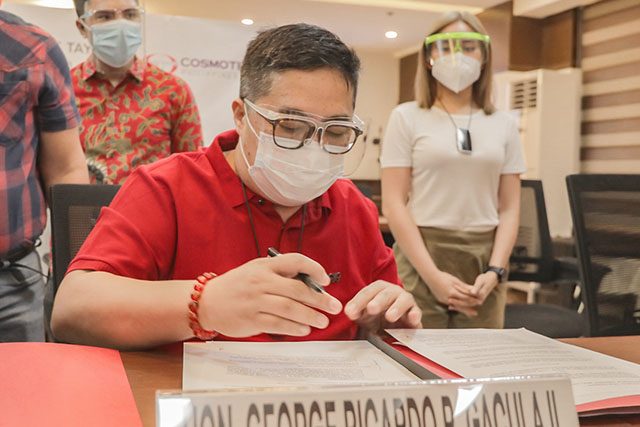
The municipality of Taytay in Rizal Province will soon say goodbye to paper-based contract tracing forms in establishments and other places as it is slated to require its residents to use a contact tracing app that relies on QR codes.
The local government unit teamed up with developers of the mobile app that is compliant to the country’s Data Privacy Act or Republic Act 10173 and does not use the cellphone’s bluetooth or GPS location, unlike other contact tracing apps.
Traze is an app that uses QR code scanning to trace places and the people that the user has come in contact with.
Those who have no mobile phone may ask their family members to register for them and then print the QR code that will serve as an ID for three days.
The developers said that individuals may scan the QR code of all the transportation he/she used or the establishments, shops and buildings that he/she visited, or vice versa.
Individuals may also scan the QR code of other individuals, which is applicable during person-to-person contact tracing, messengers and delivery personnel who are regularly exposed to different people.
If a person tests positive for COVID-19, the designated official of the LGU will request the contact tracing of the infected individual, which may be done through the app in “seconds,” unlike in manual contact tracing that may take days.
Everyone who has been in contact with the infected person, including establishments and transportation, will also receive a notification to observe themselves for any symptoms.
Workers of Taytay LGU conducted a pilot test of the app last week. The app seeks to make entry of employees and visitors of the municipal hall easier without the need to fill out forms, which could be time-consuming.
“No more hassle of filling up contact tracing forms in Taytay,” Taytay Mayor George Ricardo “Joric” Gacula II said in a Facebook post on September 4.
Traze is available on Apple’s App Store and the Google Play Store.
It also works in phones with slow mobile data or wi-fi connections.
The app was developed by Cosmotech Philippines, Inc., an information technology company providing software solutions for over 25 years.
One of the main concerns of manually filling out contact tracing forms was privacy.
Last July, the National Privacy Commission reminded business establishments to secure the personal information of customers and refrain from repurposing them, such as including them in a marketing list to send promos and other related messages.
“Collect what is necessary but disclose only to the proper authorities. So ‘yun ang kailangan nating disiplina sa panahong ito,” NPC Privacy Commissioner and Chairman Raymund Liboro said in an interview.
“Dapat nagtatalaga lamang ng isang officer sa establishment kung ano ang magiging disposition ng mga listahang ito. Hindi puwedeng i-access ninuman,” he added.
NPC also recently discouraged establishments from collecting signatures and other unnecessary personal information in contact-tracing forms.
Early this year, the Department of Tourism also rolled-out two digital applications, Safe Pass and Eat-In Express, to help DOT-accredited establishments and restaurants reopen with contactless operations for free.









